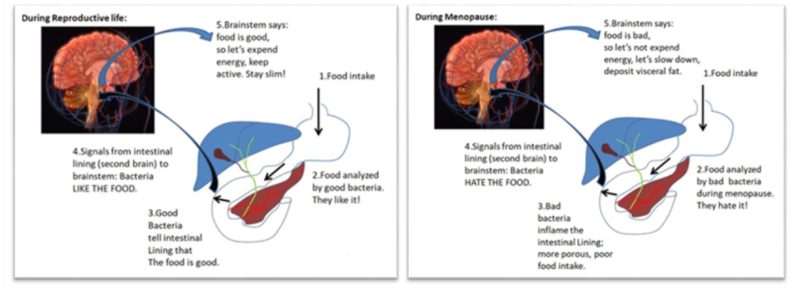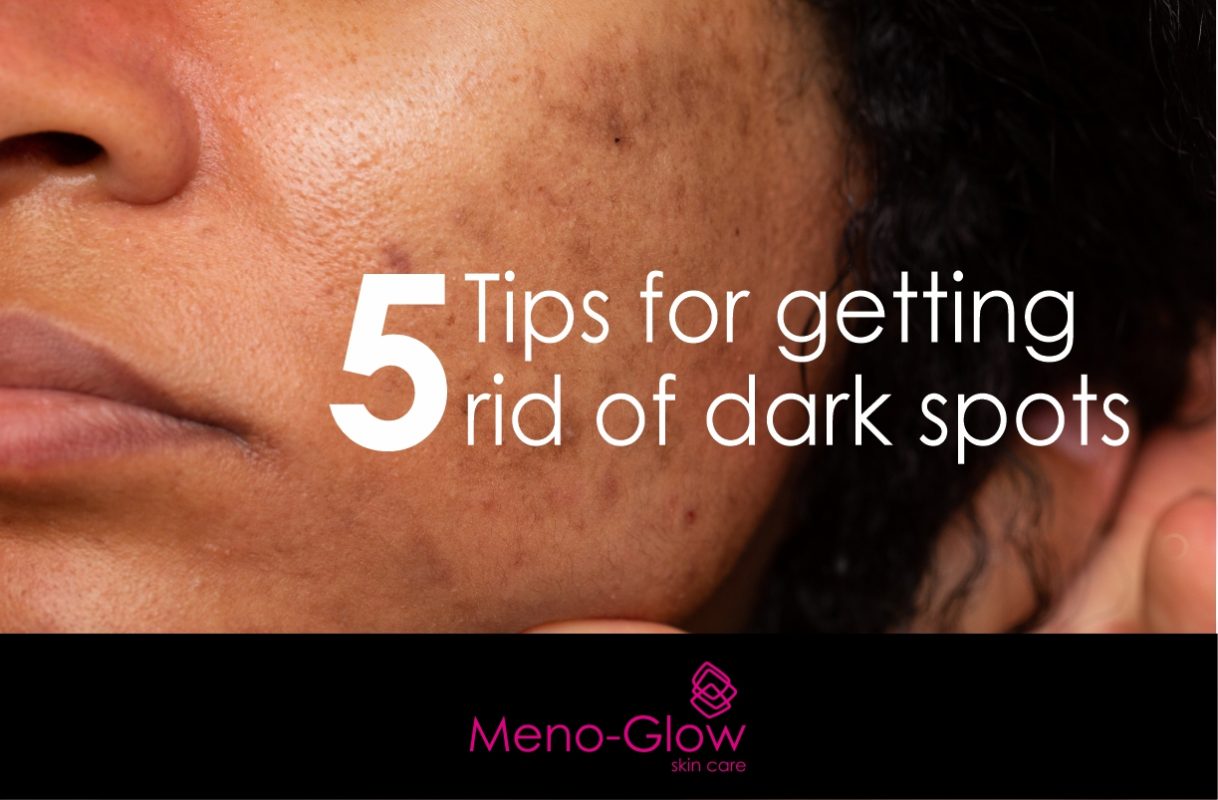The relationship between the gut and the brain, and how it can influence your weight during menopause.
Your Menopause Question:
I have read that the communication between our intestine and our brain is why we gain weight in menopause. Can you explain?
Our Response:
They say that a picture is worth a 1,000 words (Figures). You might call this the “story of the bowel.”
Our intestine is now considered by scientists to be our “second brain” (Ochoa -Reparaz, 2017). It contains its own neurologic system, immune system, and its own special bacterial colonies. So, how does this work? During the reproductive years, food from our diet is analyzed first by the bacteria in our intestine, called the microbiota. We will call it our “good bacteria,” which comprise a group of families of bacteria we have had since birth (more about that in a moment). If the “good bacteria” like what they encounter in our diet, they signal the intestinal neural system to send signals up to our brainstem saying that they, the gut microbiota, are happy (Muller, 2020). The brainstem then determines that it is okay to burn brown fat for energy, stay active, and stay slim (Duval, 2013).
Menopause changes the family of bacteria
When a woman enters the menopause transition and then menopause, levels of ovarian estradiol decline and finally become absent (Karvonen-Gutierrez, 2016). That same estradiol has bathed the gut intestinal bacteria to keep them happy. Now it is gone, and the family of bacteria change. Recall, estradiol is a powerful anti –inflammatory hormone. Absent the estradiol, the change in bacterial colonies now leads to low-level inflammation in the intestinal lining (Becker, 2020).
Why is that significant?
Food intake now is viewed negatively by the “bad bacteria” (Ko, 2020). The inflammation makes the intestine more porous, and absorption of less desirable components of the diet occurs. Unfortunately, the signals from the inflamed intestine to the brainstem are “we need to slow down.” Energy expenditure decreases, our activities decline, and the result is deposition of visceral fat around and in the mid-abdomen (Duval, 2013). Worse, the visceral fat is the generator of inflammatory proteins that are linked to many of the menopausal symptoms (Lam, 2011). And, these same inflammatory proteins then are fed directly into our liver and circulation to alter carbohydrate metabolism (increasing the risk of diabetes and heart disease) (Lobo, 2008).

A Final Note
Believe it or not, our gut microbiota is determined in large part by how we are birthed (Dunn, 2017). A vaginal birth exposes the newborn to the faecal and vaginal secretions of the mother and establishes the best of the bacterial colonies going into adulthood. Caesarean section deprives the newborn of these maternal exposures, and the bacterial colonies are not as healthy. Who would have known?
[divider width=”full”]WHY MENO-GLOW SKIN CARE
A COMPLETE SKIN REJUVENATION FOR ALL SKIN TYPES – Your answer to menopausal skincare concerns:
- Dry Skin
- Decreased elasticity
- Fine lines and wrinkles, especially around the eyes
- Thinning of the hair
- Facial flushing
Medically designed and scientifically formulated by a specialist plastic surgeon, Meno-Glow Skin Care addresses skin concerns related to menopause.
Our Meno-Glow Skin Care Range offers a simple skin care regime that facilitates skin rejuvenation and symptomatic relief of the issues caused by estrogen depletion.
Fine lines and wrinkles are reduced, the skin’s barrier function recovers, and sensitivity is significantly reduced.
What makes Meno-Glow Skin Care genuinely unique is how the formulation truly respects the skin.
[divider width=”full”]SOURCES:
James Woods, MD,Professor, Department of Obstetrics and Gynecology
Meno-Glow, Liri Victor, Cosmetologist



